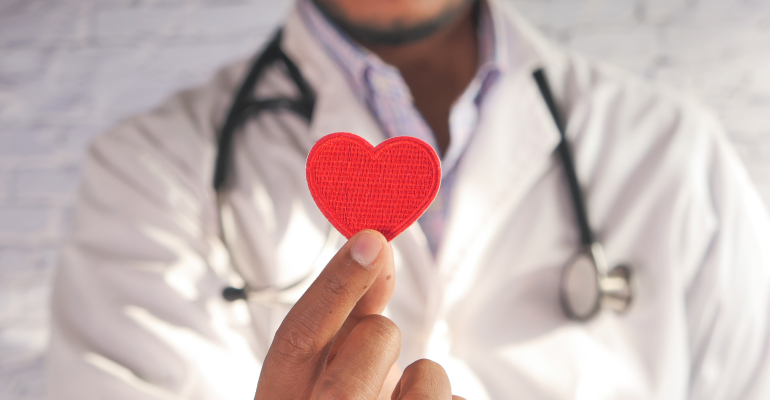World Heart Day, celebrated each year on September 29, serves as a global platform for raising awareness about heart diseases and empowering individuals to take control of their cardiovascular health. In today's rapidly evolving healthcare landscape, the fusion of medical expertise with cutting-edge technology is at the forefront of reshaping the world of heart health.
Dr. Fereidoon Shafiei, Staff Physician in the Heart, Vascular & Thoracic Institute at Cleveland Clinic Abu Dhabi, emphasises the importance of diagnosing and preventing heart diseases for optimal cardiovascular well-being. He underscores the pivotal role of proactive healthcare measures in effectively managing heart-related risks and asserts that early diagnosis of heart disease is crucial for maintaining good cardiovascular health — and prevention starts at home.
This proactive approach, according to Dr. Shafiei, revolves around adopting a healthy lifestyle. It entails priorities such as embracing whole foods, engaging in regular exercise (targeting 150 to 300 minutes of moderate activity per week), gradually incorporating resistance training to support muscle health, blood sugar stability, and cholesterol management, and diligently managing stress levels. Dr. Shafiei also highlights the significance of quitting smoking and consulting with physicians for personalised care tailored to those with pre-existing risk factors.
Related: Breaking down heart health barriers in UAE
With embracing a heart-healthy lifestyle, it is equally important to recognise the remarkable technological advancements that are transforming the diagnosis and treatment of heart-related conditions. Dr. Shafiei and Dr. Mitesh Badiwala, Staff Physician in the Heart, Vascular and Thoracic Institute at Cleveland Clinic Abu Dhabi delve into these groundbreaking innovations that are revolutionising heart health.

Dr Fereidoon Shafiei, Staff Physician in the Heart, Vascular & Thoracic Institute at Cleveland Clinic Abu Dhabi
“Advancements in electrophysiology, along with the integration of wearable technologies, are reshaping the diagnosis and treatment of heart rhythm disorders such as supraventricular tachycardias, atrial fibrillation, atrial flutter, ventricular tachycardias,” says Dr. Shafiei. He explains: “Electrophysiology, a specialised branch of cardiology, concentrates on the heart's electrical system and related treatments. Simultaneously, wearable technologies are playing a pivotal role in this medical evolution.”
These technologies encompass state-of-the-art 3D mapping systems and fluoroscopy-free ablation, offering a safer and more precise approach to diagnosing and treating cardiac arrhythmias. Importantly, they reduce radiation exposure for both patients and healthcare professionals. Additionally, wearable devices like smartwatches and monitors are enhancing diagnostic accuracy, enabling the early detection of abnormal heart rhythms and faster interventions.
“The synergy between electrophysiology and wearable technologies is fundamentally transforming how heart rhythm disorders are managed, ultimately leading to improved patient outcomes. All types of heart rhythm disorders can be detected through these devices and immediate treatment can be initiated by electrophysiologists,” Dr. Shafiei adds.
Related: Challenging misconceptions around heart health in the Gulf
Another game changer in managing health conditions is the Left Ventricular Assist Devices (LVADs), which are mechanical pumps that have a profound impact on patient outcomes as they serve diverse purposes to assist the left side of the heart in patients with heart failure.
“LVADs are a crucial treatment option for the sickest heart failure patients, providing both short-term and long-term support,” explains Dr. Badiwala. “They offer a lifeline for individuals who have exhausted other treatment options, whether it be as a bridge to transplant, a means of maintaining a patient's condition until transplantation becomes viable, or even as a destination therapy to enhance the quality of life and extend survival rate,” he says.
Over time, LVAD technology has evolved, becoming more compact and reliable. The newest generation of LVADs boasts promising survival rates, giving hope to patients facing dire cardiac conditions.
Get the latest insights from the healthcare industry straight to your inbox. Subscribe for a bi-weekly roundup of the latest healthcare tech, trends, innovation and patient experience, accompanied by exclusive interviews from the industry’s leaders.

